NSE SensexNSE or National Stock Exchange is considered as the foremost stock exchange of India (the seventh-largest country in terms of land area). It was established in the year 1992. It is located in Mumbai, the capital city of Maharashtra. The NSE is the second-largest exchange in the world for the cash market trades. 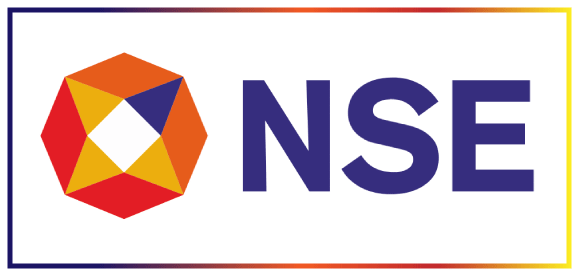
The Managing Director and Chief Executive Officer (CEO) of the National Stock Exchange is Vikram Limaye. He was the CEO and Managing Director of the IDFC (a finance company) before joining NSE. IDFC stands for Infrastructure Development Finance Company Limited. NSE offers trading facilities to investors all over the country. The investors start with trading in the stock market. Now, let's discuss the trading and stock market in detail. Here, we will discuss the following terms:
Important TermsLet's discuss some important terms. TradingTrading means an act of selling and buying goods and services. In terms of stock, we can say that trading is the act of transferring stock from the seller to the buyer. 
The stock is defined as a share that represents the ownership of a portion of a corporation. Stock MarketThe stock represents the collection of sellers and buyers of the stocks. The stock investments are carried out via two platforms called electronic trading and stock brokerages. The electronic trading platform is defined as the online platform, which is generally used to place an order for the financial products using the software. The stock brokerages are the investment broker or a trading representative. The stock market is also called as the share market. Its goal is to ease the exchange of securities between the buyers and sellers. It ensures that the securities are exchanged at a reduced risk. It helps investors to invest easily rather than investing in large businesses. The stocks can also be the shares of companies that can be sold and bought on the stock exchanges. SharesA company can issue the shares to provide a hike to their investments for future projects. Investors can purchase the stocks of these companies if they believe that they can retrieve the future profit of these companies. 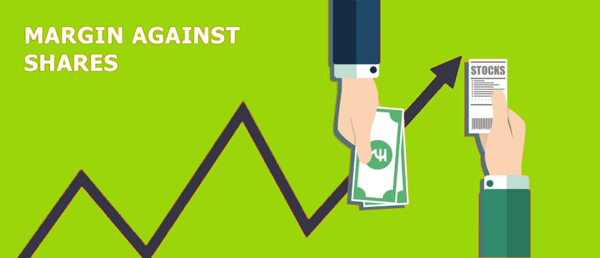
Profit is made when the investors sell the stocks at an increased amount, which can be in the form of capital gain or dividends. SensexSensex is the term used to determine the measure of the economy of India. Sensex is also known as the sensitivity Index. It represents the stock market index of the financial and established companies. The Sensex of India's economy has been a growth curve since 1991. The significant growth of the Sensex has to turn out in the 21st century. Sensex is considered as the benchmark of BSE. Hence, Sensex is commonly used with the term BSE (Bombay Stock Exchange). InvestmentIt is defined as the task for funding or investing the money for profit. It is also defined as the process of spending money to receive extra money in the future. The money is invested in various types of cycles. InvestorsThe investors sell or buy the stocks through their trading account, which is necessary to invest in the stock market. Investors invest money in various forms in the hope that money will grow over time. But, investors can also suffer from losses. Hence, an investor should have proper knowledge of investing and where his/her investment could get more profit. The global investors in NSE include GS Strategic Investments Limited, Aranda Investments Pte Limited (Mauritius), Gagil FDI Limited, etc. The domestic investors include SBI (State Bank of India), Reliance, ICICI Bank, Life Insurance Corporation, IDFC Limited, etc. Market CapitalizationNSE Market Capitalization represents the market value of the company's shares. The total market capitalization of the NSE was $2.27 trillion as of the year 2018. In 2018, NSE was the world's 11th largest stock exchange. While in the year 2019, NSE was the world's largest derivative stock exchange by volume. It has traded most of the world's contract in the year 2019. 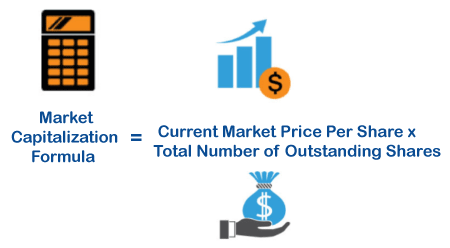
Types of MarketPrimary Market The securities of the primary market are determined as initially created stocks. The company shares are sold and offered for the first time. It is a type of open-source market. The company directly sells issued stock in the primary market. It is dominated by large institutes, which can be investment banks, etc. Secondary Market The idea of the secondary market is to buy and sell the shares which are owned by the investors. The company that has already sold the stocks cannot be a direct participant in the secondary market transaction. Let's first discuss the segments in the stock market. Segments are defined as the group of people that shares some characteristics for marketing. Such people can be businesses, families, individuals, organizations, etc. The markets are divided into segments for the convenience of the people; Each segment has its lifestyle, needs, demographics, etc. of the customer. The professional marketers approach the segments after understanding it. 
The National Stock Exchange offers Investment and trading in various segments, which are listed below:
Capital MarketThe Capital Market segment is further categorized as:
Derivatives SegmentThe Derivatives segment is further categorized as:
F & O The future and Options are the two products of the derivatives. It provides trading in the derivatives instruments, such as Stock Options, Stock Futures, Index Options, and Index Futures. Debt SegmentThe Debt segment is further categorized as:
History of NSENSE allows trading to the people who were experienced, qualified, and met the minimum financial requirements.
It has also increased the attraction of domestic and international investors in the NSE or Indian Stock Market. Investment in NSEInvestments are very important today for every stage, such as education, wedding, retirement, etc. So, it's essential to know about the investment process at the right place. The money you earn is not only for spending. Everyone saves money for future needs. An investment gives a financial gain to the investors. 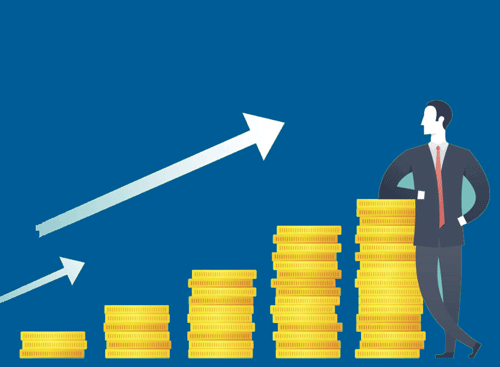
Here, you will read all the essential points and doubts that are crucial for any investor. Let's start. Why Investment?The investment lets your money grow over time. Let's discuss some reasons to make investments, which are listed below:
TypesLet's consider the types of investments in which you can invest. It is listed below:
Financial Assets These assets include provident or pension funds, insurance, fixed deposits with banks, a small saving instrument with post offices, etc. Physical Assets These assets include commodities, such as gold, jewellery, real estate, etc. OptionsThe investment options are shown in the below diagram: 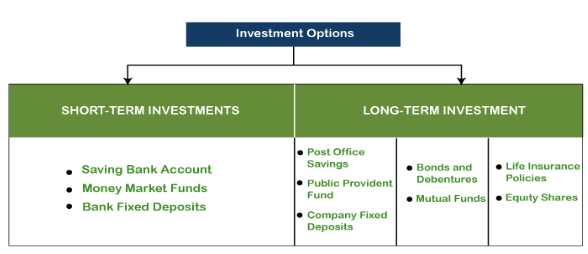
Golden RulesThere are three golden rules for the investors to invest in the National Stock Exchange, which is listed below:
The returns and wealth of investment take time. An investor should have patience. When you invest early, you are giving a lot of time for your investment to increase. Points to understand before InvestingInvestments are suitable if invested in the right place. So, let's consider some points that everyone should know before investing.
Investment in NSETo begin investing, a person requires the following documents, which are given below: Trading AccountThe trading account acts as a bridge between the bank account and the Demat account. The trading account and Demat account are created together. The required documents to open a Trading account are listed below:
Demat AccountThe Demat account is used to hold your securities digitally. To open a Demat account, we need the following documents:
After the verification of all these documents, your Demat account is created. KYC FormThe KYC or Know Your Client is the agreement between the investor and the broker. Form is common for all the types of investments registered at the stock exchange. The KYC form includes some regulations, which are listed below:
The documents required for the KYC form are listed below:
Let's start with the investment process of the National Stock Exchange. Stock Broker The stockbrokers are called the registered member of the stock exchange, which trades on behalf of the investors. It means that the investors can buy or sell the stock directly. The stockbrokers can also be employed at a broker's firm or an independent broker. They can help you in making the right decisions. You might be thinking about what a stockbroker can do. So, let's discuss this.
But, you can also approach the SEBI Registered member instead of a broker. In case you are not satisfied with the broker, you can file a complaint with the SEBI (Securities and Exchange Board of India) under the Arbitration Laws. The steps to start investing are listed below:
Online TradingIn January 2000, SEBI approved the brought of Internet-based services and trading, which takes place through the routing systems. The routers will route the orders of the clients to exchange the trading system. The client can access trade sitting in any part of the world through the Internet with brokers' help. The broker acts as the medium that introduces you to the Internet-based trading. NSE is considered the first stock exchange to approve online trading, which provides Internet-based trading services. The circular has been issued by the NSE that explains the guidelines and procedures is the circular number NSE/MSD/41332, which is dated 17 June, 2019. The NSE members can also utilize the services provided by the ASP, which includes software and hardware maintenance. The circular issued by the NSE explaining the ASPs () requirements is the circular number SE/CMO/0028/2000, which is dated 18 December, 2000. Trading Schedule of NSEThe trading on the equities segment takes place on the days except for the Saturday, Sunday, and other holidays declared by the exchange in advance. The trade timings for the equities segment are listed below: 1. Timings for Pre-Open session Open timings for order entry and modification are: 09:00 Hrs Close timings for order entry and modification are: 09:08 Hrs Pre-Open immediately starts after the Pre-close timings. 2. Timings for Regular Trading session Open timings for Normal/Limited Physical Market are: 09:15 Hrs Close timings for Normal/Limited Physical Market are: 15:30 Hrs The timings for Block Deal Sessions are listed below: The morning window of Block Deal Session operated between 08:45 AM to 09:00 AM. The afternoon window of Block Deal Session operated between 02:05 PM to 02:20 PM A Block deal is when two parties agreed to buy or sell the securities at the agreed price, which is further informed to the stock exchange on the special window. The minimum value of the deal can be Rs. 5 crores. 3. The timing duration for the closing session is held between 15:40 hrs and 16:00 hrs. Orders HandlingThe orders are classified as the best buy order and best sell order. The best buy order is the order with the highest price, while the best sell order is the order with the lowest price. A seller always wants to sell the product at the highest offered buy price. It depends on how the computer views the order. The computers view the entire sell and buy orders from the point of view of the buyers and the sellers. ConditionsA member of a trading system can specify types of orders as per his/her requirements. It is further classified based on two categories, which are listed below:
The time conditions are categorized based on: DAY: As the name suggests, the order is only valid for the day on which it is specified or entered. The orders are matched with other orders in the trading system. If the order does not match on a particular day, it automatically gets cancelled at the end. IOC: Immediate Or Cancel is the condition in which the order needs to match instantly when it is entered. It means that the trading member has to sell or buy security immediately when it is released. Otherwise, the order will be deleted from the market. A partial match can work in such cases, but the unmatched part of the order suddenly gets cancelled.
Some of the essential price conditions are listed below:
BSEThe BSE or Bombay Stock Exchange is determined as the pulse of domestic stock markets in India. The stock market index of BSE consists of the list of 30 well-renowned and financial companies. Some of the traded stocks of these 30 companies are the largest and active stocks. NSE vs. BSE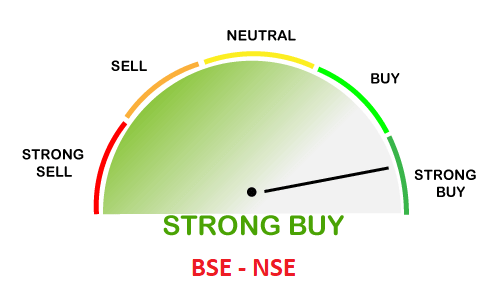
Let's discuss some differences between NSE and BSE.
Next TopicQuotes
|
 For Videos Join Our Youtube Channel: Join Now
For Videos Join Our Youtube Channel: Join Now
Feedback
- Send your Feedback to [email protected]
Help Others, Please Share









